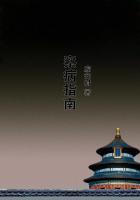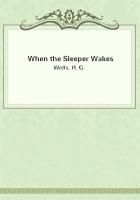"Yes, go, sister," said Louis, who heard the last part of Hannah's remarks, and felt that he could not take his father by surprise. So, leaving her husband and brother below, Maude glided noiselessly upstairs to the low attic room, where, by an open window, gazing sorrowfully out upon the broad harvest-fields, soon to be no longer his, a seemingly old man sat. And Dr. Kennedy was old, not in years, perhaps, but in appearance. His hair had bleached as white as snow, his form was bent, his face was furrowed with many a line of care, while the tremulous motion of his head told of the palsy's blighting power. And he sat there alone, that hazy autumnal day, shrinking from the future and musing sadly of the past. From his armchair the top of a willow tree was just discernible, and as he thought of the two graves beneath that tree he moaned, "Oh, Katy, Matty, darlings.
You would pity me, I know, could you see me now so lonesome. My only boy is over the sea--my only daughter is selfish and cold, and all the day I'm listening in vain for someone to call me father."
"Father!" The name dropped involuntarily from the lips of Maude, standing without the door.
But he did not hear it, and she could not say it again; for he was not her father; but her heart was moved with sympathy, and going to him laid her hands on his head and looked into his face.
"Maude--Matty's Maude--my Maude!" And the poor head shook with a palsied tremor, as he wound his arms around her and asked her when she came.
Her sudden coming unmanned him wholly, and bending over her he wept like a little child. It would seem that her presence inspired in him a sense of protection, a longing to detail his grievances, and with quivering lips he said, "I am broken in body and mind. I've nothing to call my own, nothing but a lock of Matty's hair and Louis' little crutches--the crutches that you cushioned so that I should not hear their sound. I was a hard-hearted monster then. I aint much better now, but I love my child. What of Louis, Maude? Tell me of my boy," and over the wrinkled face of the old man broke beautifully the father-love, giving place to the father-pride, as Maude told of Louis' success, of the fame he won, and the money he had earned.
"Money!" Dr. Kennedy started quickly at that word, but ere he could repeat it his ear caught a coming sound, and his eyes flashed eagerly as, grasping the arm of Maude, he whispered, "It's music, Maude--it's music--don't you hear it? Louis crutches on the stairs.
He comes! he comes! Matty's boy and mine! Thank Heaven, I have something left in which that woman has no part."
In his excitement he had risen, and with lips apart, and eyes bent on the open door he waited for his crippled boy; nor waited long ere Louis came in sight, when with a wild, glad cry which made the very rafters ring he caught him to his bosom. Silently Maude stole from the room, leaving them thus together, the father and his son. Nor is it for us to intrude upon the sanctity of that interview, which lasted more than an hour, and was finally terminated by the arrival of Maude Glendower. She had returned sooner than was anticipated, and, after joyfully greeting Maude started in quest of Louis.
"Don't let her in here," whispered the doctor, as he heard her on the stairs. "Don't let her in here; she'd be seized with a fit of repairs. Go to her; she loves you, at least."
Louis obeyed, and in a moment was in the arms of his stepmother. She had changed since last they, met. Much of her soft, voluptuous beauty was gone, and in its place was a look of desperation, as if she did not care for what she had done, and meant to brave it through. Still, when alone with Mr. De Vere and Maude, she conversed freely of their misfortunes, and ere the day was over they thoroughly understood the matter. The doctor was ruined; and when his wife was questioned of the future she professed to have formed no plan, unless, indeed, her husband lived with Nellie, who was now housekeeping, while she went whither she could find a place. To this arrangement Mr. De Vere made no comment. He did not seem disposed to talk, but when the day of sale came he acted; and it was soon understood that the house together with fifty acres of land would pass into his hands. Louis, too, was busy. Singling out every article of furniture which had been his mother's, he bought it with his own money, while John, determining that "t'other one," as he called Katy, should not be entirely overlooked, bid off the high-post bedstead and chest of drawers which once were hers. Many of the more elegant pieces of furniture were sold, but Mr. De Vere kept enough to furnish the house handsomely; and when the sale was over and the family once more reassembled in the pleasant parlor, Dr.
Kennedy wept like a child as he blessed the noble young man who had kept for him his home. Maude Glendower, too, was softened; and going up to Mr. De Vere she said, "If I know how to spend lavishly I know also how to economize, and henceforth none shall accuse me of extravagance."
These were no idle words, for, as well as she could, she kept her promise; and though she often committed errors, she usually tried to do the thing which her children would approve. After a day or two Mr. De Vere and Maude returned to Hampton, leaving Louis with his father, who, in his society, grew better and happier each day.
Hannah, who was growing old, went, from choice, to live with Maude, but John would not forsake his master. Nobody knew the kinks of the old place like himself, he said, and he accordingly stayed, superintending the whole, and coming ere long to speak of it all as his. It was his farm, his oxen, his horses, his everything, except the pump which Hannah in her letter to Mauda, had designated as an injun.















